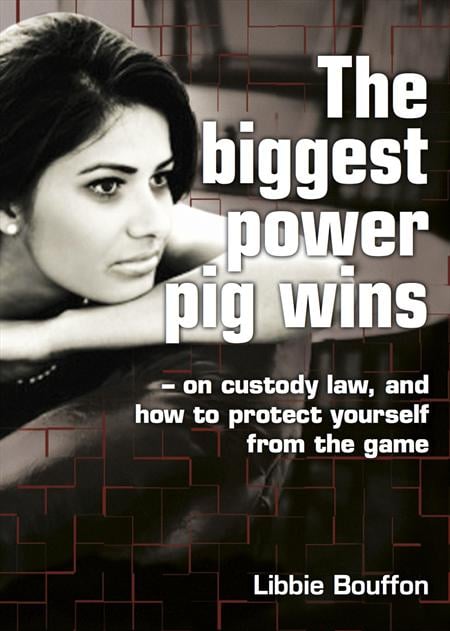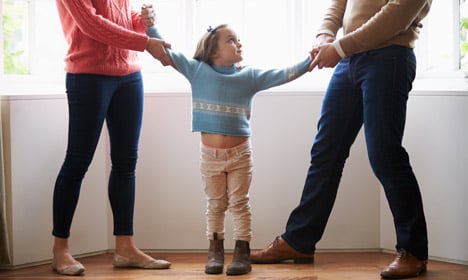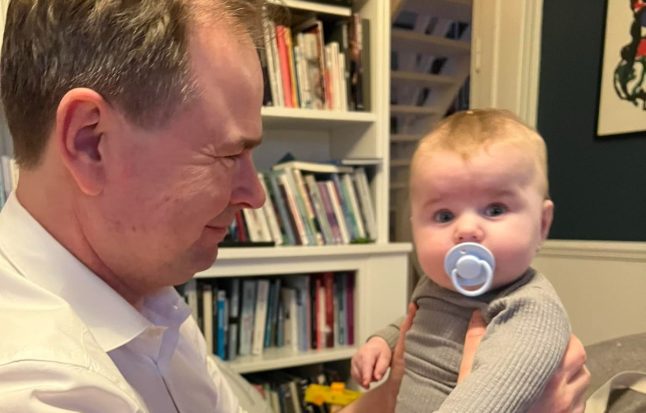 In her capacity as psychologist and author of a book on the dark side of the Danish custody law, Libbie Bouffon is connected to a network of more than 200 parents – mostly mothers. Her e-book, 'The biggest power pig wins', deals with mothers struggling with the Danish custody law and is available within Denmark here and internationally here. Libbie Bouffon is a pseudonym. The author's real identity is known to The Local.
In her capacity as psychologist and author of a book on the dark side of the Danish custody law, Libbie Bouffon is connected to a network of more than 200 parents – mostly mothers. Her e-book, 'The biggest power pig wins', deals with mothers struggling with the Danish custody law and is available within Denmark here and internationally here. Libbie Bouffon is a pseudonym. The author's real identity is known to The Local. DIVORCE
Danish custody law is an inescapable trap
The author of a new book on Danish custody law argues that Denmark's focus on forced cooperation leaves mothers – and particularly foreign mothers – feeling like they have no way out.
Published: 15 December 2014 18:33 CET

"It is a peculiar Danish notion that you can legislate on personal characteristics such as ‘responsibility’ and ‘cooperation'," the author writes. Photo: Colourbox
The Danish custody law is a trap. And if you become pregnant in Denmark or if you bring children to live in Denmark, you are already trapped. Except you won’t know it until it is too late.
The Danish custody law, the ‘Parental Responsibility Act’, prioritizes shared parenting over children’s need for protection. Children must be handed over for visitation almost regardless of the circumstances. The Danish law requires that divorced parents 'cooperate' even when there is a history of violence or abuse.
These parents are traumatized because the Danish system prohibits them from protecting their children. Lifting the burden of proof is almost impossible. Instead, there is an increasing tendency to place protective parents under suspicion for lying.
A fragmented custody system
When trying to resolve the situation, these parents come up against a custody system so fragmented that cases can circulate between the State Administration (Statsforvaltningen), social services and the courts for years.
A sample assessment indicates that once lost in the Danish custody swamp, it takes an average of 5.4 years to complete a high-conflict case. And even resourceful and well-educated parents are left traumatized and unemployed on welfare.
Protective parents feel caught behind a glass wall. No one sees it coming. But no one can pass through it. They struggle to maintain hope that one day, they will be free again.
‘Help’ means it’s time to take cover
It is assumed that a child's failure to thrive is not caused by stressful visitation agreements but rather by the lack of cooperation between the parents. Therefore, social services regularly send divorced couples into year-long mediation processes with the purpose of improving their cooperation. Violence is reframed as a ‘disagreement’ for which the parties are given equal responsibility.
Listening to tape recordings of such meetings it becomes apparent that when a victim of violence reacts to verbal abuse during mediation, she is automatically seen as participating in the ‘conflict’. While nothing is done to stop the violations, the protective parent is coerced into ‘cooperation’ using threats that if she doesn’t, the child may be removed.
It is a peculiar Danish notion that you can legislate on personal characteristics such as ‘responsibility’ and ‘cooperation’. This idea has caused the development of an extensive state system that will ‘help’ you to think and feel in such a way as to make this law a success.
What these cases have shown is that if any entity within the Danish system offers you ‘help’, it means it’s time to take cover. Danish ’help’ is not something to strive for.
The production of silent consent
It is astonishing to witness how many cases the Danes dismiss as irrelevant or isolated. The existence of protective parents is not recognized in Denmark and the media consistently portray them as vengeful and harassing people whose aim is to damage the other parent.
The system manufactures silent consent. Speaking out is regarded as seeking conflict and parents who ‘seek conflict’ are threatened with their children being removed. Danish authorities have defined what it means to have parental ability. And those who do not ‘cooperate’ with the other parent by definition have no parental ability.
The cases in my network may be just the tip of an iceberg, the depth of which no one takes an interest in. However, the stories bear witness to a country losing itself in an ideology with no basis in reality.
Foreigners are shocked
We have had several tragic cases in which a foreign mother or child was not protected against violence or abuse. In such cases, when the mother tried to return to her home country, the children were taken from her.
While it is legal to move within the country, moving a child to a new school is considered justification for placing them with the other parent. Thus, moving involves a risk of losing the children. You can argue that this will limit your career and life options, but do keep your voice down. Such arguments are considered selfish.
My book is a cautionary tale of a fairy tale country, which markets itself as having the happiest people on Earth. But in the shadows of the Danish custody law are those who have been sacrificed at the altar of this illusive image.
Had I not examined case files and listened to tape recordings of these mediation sessions, I would have written it all off as an angry activist movement. However, the fact is that if you do have a child in Denmark, or if you bring children to live here, you have to accept living without the same rights and opportunities as other people.
 In her capacity as psychologist and author of a book on the dark side of the Danish custody law, Libbie Bouffon is connected to a network of more than 200 parents – mostly mothers. Her e-book, 'The biggest power pig wins', deals with mothers struggling with the Danish custody law and is available within Denmark here and internationally here. Libbie Bouffon is a pseudonym. The author's real identity is known to The Local.
In her capacity as psychologist and author of a book on the dark side of the Danish custody law, Libbie Bouffon is connected to a network of more than 200 parents – mostly mothers. Her e-book, 'The biggest power pig wins', deals with mothers struggling with the Danish custody law and is available within Denmark here and internationally here. Libbie Bouffon is a pseudonym. The author's real identity is known to The Local.
Url copied to clipboard!


 Please whitelist us to continue reading.
Please whitelist us to continue reading.
Member comments